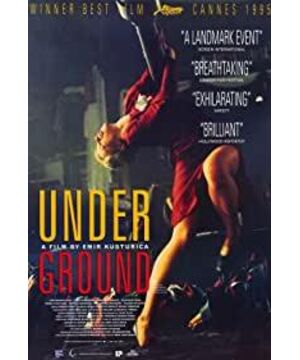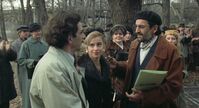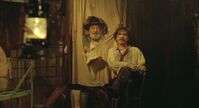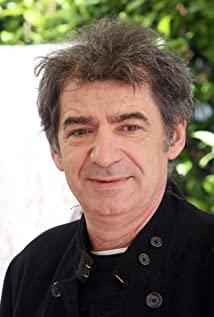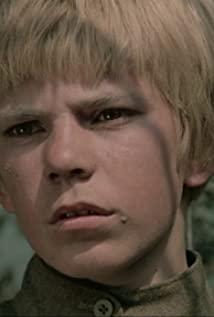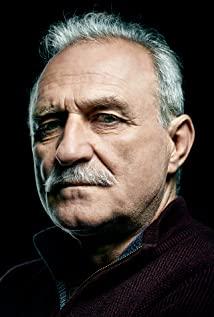Most of the price of freedom is too heavy to bear, especially the freedom of a nation and a country. The history of chasing freedom is definitely worth remembering and sung by everyone. We should celebrate victory but never forget the price we paid. A film writes the history of a nation and a country, praises the warriors who fought bloody battles, satirizes the politicians who put their interests first, and looks back on the history of decades of hard struggle for freedom. At this level, "Underground" is definitely an irreplaceable epic, and it is definitely worth typing down these words to let more people know about this history and remember this country. Most of the previous cognition of epics stayed in "The Lord of the Rings", "Braveheart" and "Kingdom of Heaven". The grand world view, the shocking scenes and the history engraved in my heart have shocked me time and time again. But until after watching "Underground", I know that this is the most beautiful epic in my heart - the pursuit of freedom. In 1941, Yugoslavia was in the midst of German-fascist occupation. To celebrate his friend Hei Zai's joining the Communist Party, Ma Gao invited a band to cheer him up. Ma Gao's younger brother Ivan was the zookeeper. During a German bombing, he only rescued the chimpanzee Song Ni from the zoo. Soon the German army launched a large-scale search, and a large number of revolutionary family members such as Hei Zai and Ivan took refuge in the cellar of Ma Gao's house. Ma Gao became the only person they contacted on the ground. Hei Zai's wife died in childbirth, leaving behind his son Zu Fan. The cellar used for hiding gradually evolved into an underground arsenal for the revolution to manufacture weapons, and four years later, at the end of World War II, Ma Gao rose to the top and was embraced by the masses along with Natalie, a former opera singer who is now his wife. Margo deceives people that the war is still going on and keeps adjusting the clock to steal time. People had to hide in this cellar and step up to make weapons for the "revolution". In reality, however, these weapons were shipped abroad in bulk from the backyard, in exchange for large sums of money for Mako. At Zufan's wedding, Magao and Natalie went underground. Taking advantage of the chaos of the banquet, Hei Zai took Zu Fan to the ground with a gun, ready to fight with the German army... Time flies, and in 1995, Yugoslavia was once again caught in the war, and the old grievances and grievances came to an end. At times, people are inevitably tragic endings. The whole film is divided into three chapters by the director: war-cold war-war, and the revolving structure presents a substantial progression through the reproduction of historical pictures. The beginning of war is always so unexpected. Ma Gao who arranges flowers for sex, Ivan who is obsessed with feeding tigers, Hei Zai who eats breakfast as steady as Mount Tai. The director's description of the arrival of the war seems unwilling to render any ink, the war never seems to be There are houses that can be bombed down, elephants fleeing, and prostitutes without clothes, all of which show the cruelty of the coming war. The "Kusturica"-style farce was vividly shown in the following, the goose provoking the injured tiger after the cage was blown up, the man who was obsessed with "climaxing", the black boy who still wanted to hook up with the girl. Everything seemed so interesting before the gunfire in the director's black "game." Kusturica uses magical, absurd fables to shape us Yugoslavia in the 1940s, when wartime "sheltered" basements gradually developed into "hidden" "self-sufficient" underground cities, when the clock was turned over and over again. Slow down once, when five years are stolen bit by bit, the inheritance of 20 years still does not stop. When artillery fire blows away the walls of the "sanctuary", when they are fully armed and ready for a bloody battle with the enemy, when there is nowhere to release the 20 years of oppression. The flying bullets, the release of the mood, the frenetic music, nothing can be closer to freedom than that moment. Animals are one of the protagonists that can never be missing in Kusturica films. The unique expression of animals is a game of the director himself. Whether it is an elephant rolling away his shoes or a chimpanzee bombarding the underworld, you can always feel sadness and powerlessness in the joyful pictures. The fish who was "shot" for struggling at the wedding, Song Ni, the chimpanzee chasing love, and the cows swimming in the river are actually no different from humans. In this struggle for freedom, both humans and animals seem so insignificant and powerless. What's the difference between a black boy rushing out of the basement with a weapon and wanting to have a big fight to vent the repression of 20 years without the sun and bombarding the chimpanzee in the basement. Without light, without freedom, there is nothing. The bright gypsy music throughout is one of the key factors that make "Underground" a god in my heart. Kusturica himself is a musically accomplished person, so he is extremely selective in the choice of soundtracks for all his films. Kusturica and Serbian composer Goran Bregovic's collaboration perfectly presents the madness of "Underground" repressed at the bottom. A closer look at the music in the whole film is enough to see Kusturica's ambitions. Some people praised his film and others praised his music. In Kusturica's "Underground", it is definitely not only its epic. Movies and music can definitely be named epic. Whether it's the music at the beginning of the movie with the horse-drawn carriage running along with the gunshots or the hilarious and darkly humorous performance of the wedding. Or it was the band that chased and waited for free performance for 20 years in the "underground", which gave people a powerful comfort. It's enough to see Kusturica's musical ambitions. The ending of "Underground" is equally thought-provoking, in which a tribute to the closing of Fellini's "Eight and One and a Half" can be seen. Everyone was resurrected again, cheering, singing and dancing together. Although this may be just a beautiful dream created by the director, he successfully told us how to deal with the war that has passed, let us forget everything in the past, and enjoy the freedom of all people after the war is over. Just as at the end of Ivan's monologue, the small island separates the earth, and the crowd sings on the isolated island. Although it is lonely, it is a free carnival.
View more about Underground reviews


